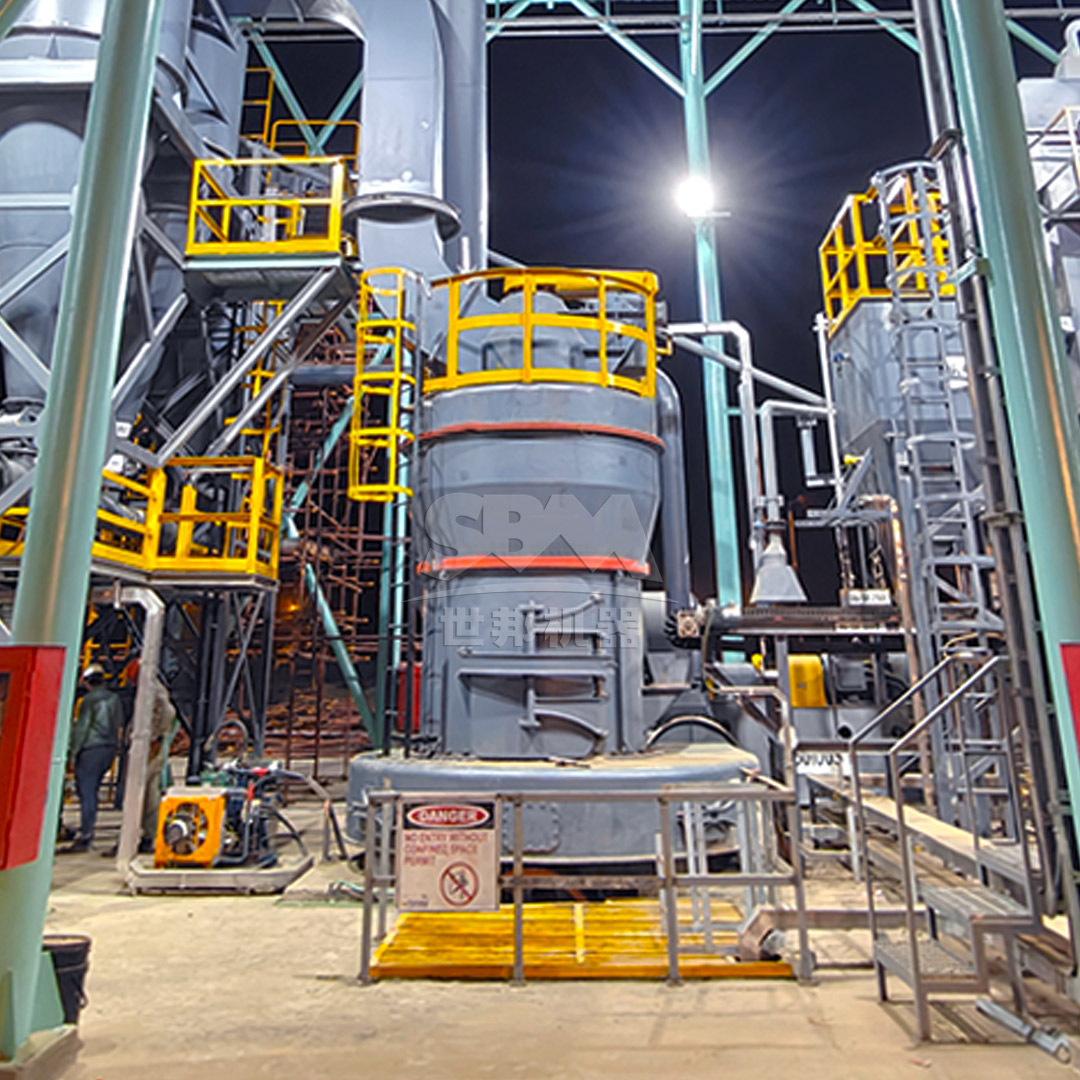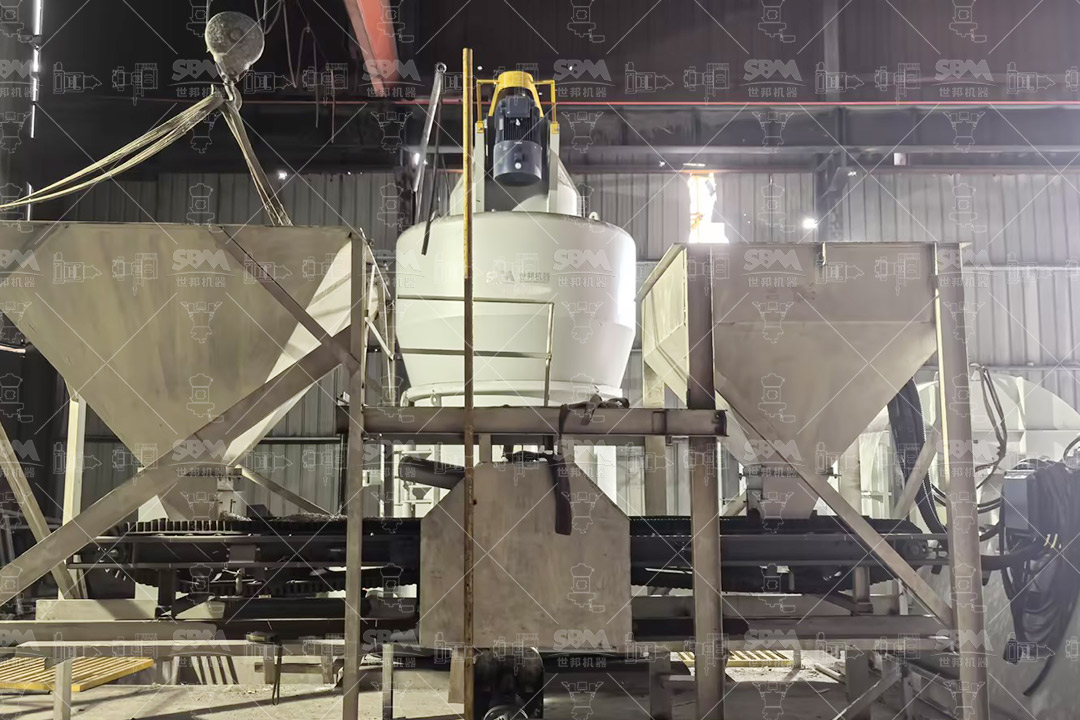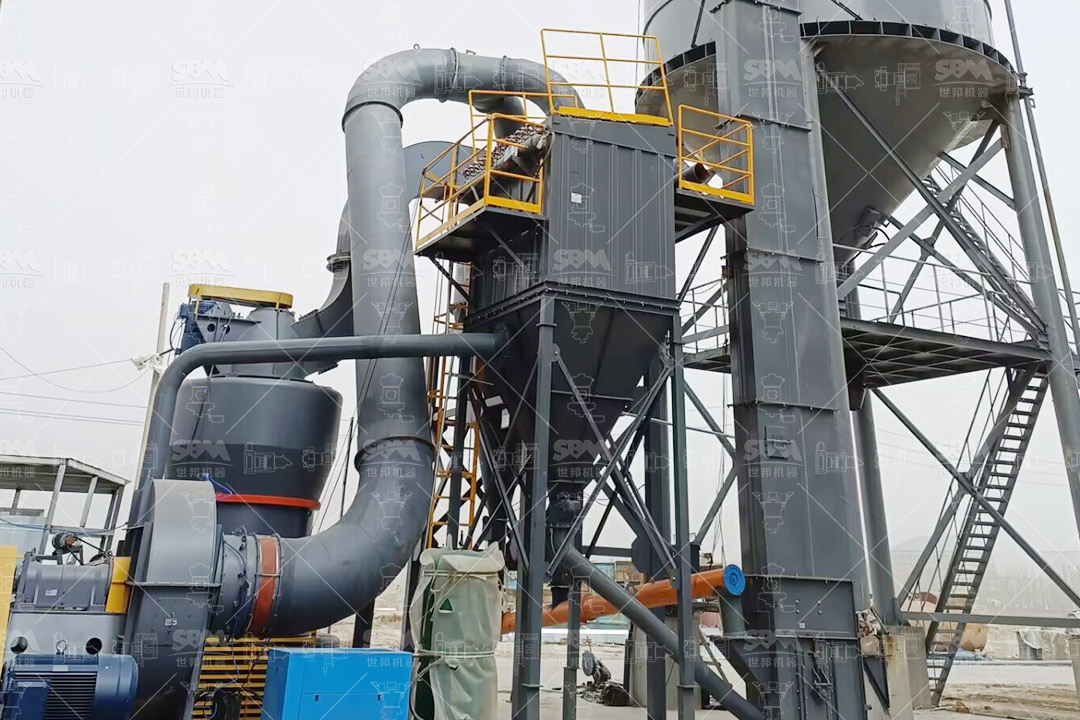The chemical industry relies heavily on finely ground barite powder for various applications, including fillers, pigments, and weighting agents. Selecting the right barite roller mill is crucial for achieving optimal particle size distribution, production efficiency, and cost-effectiveness. This comprehensive guide explores the key factors to consider when choosing a barite roller mill for fine powder production, with specific recommendations for different production scenarios.

Barite (BaSO₄) is a mineral characterized by its high density (4.3-4.6 g/cm³), moderate hardness (3-3.5 Mohs), and chemical inertness. These properties present unique challenges in grinding operations. The high density requires robust equipment with sufficient power to handle the material, while the moderate hardness means barite can be ground effectively with proper milling technology without excessive wear on grinding components.
Chemical industry applications typically require barite powder in the range of 325 to 2500 mesh (45 to 5μm). The specific application determines the required fineness:
| Application | Required Fineness | Special Requirements |
|---|---|---|
| Paint & Coatings | 325-1250 mesh | Narrow particle distribution |
| Plastics & Polymers | 800-2000 mesh | High whiteness, low impurities |
| Advanced Chemicals | 1500-2500 mesh | Ultra-fine, uniform particles |
Determine your hourly and daily production needs before selecting equipment. Chemical plants typically require continuous operation with capacities ranging from 0.5 to 45 tons per hour, depending on the scale of operations. Consider both current needs and future expansion possibilities when evaluating mill capacity.
Grinding operations account for a significant portion of energy consumption in chemical processing. Modern roller mills can reduce energy consumption by 30-50% compared to traditional ball mills. Look for mills with optimized grinding mechanisms, efficient classifiers, and intelligent control systems that minimize power consumption while maintaining output quality.
Precise particle size distribution is critical in chemical applications. Advanced classification systems with adjustable parameters allow for tight control over final product fineness. The ability to consistently produce powder with D97 ≤ 5μm is essential for high-value chemical applications.

Evaluate the total cost of ownership, including initial investment, energy consumption, wear part replacement frequency, and maintenance requirements. Mills with durable grinding components, accessible maintenance points, and automated monitoring systems typically offer lower long-term operating costs.
For applications requiring the finest barite powders (2500 mesh/5μm and below), ultrafine grinding mills offer superior performance. These mills combine high-pressure grinding with precision classification to achieve exceptional fineness with narrow particle size distribution.
Our SCM Ultrafine Mill series represents the pinnacle of barite ultrafine grinding technology. With output fineness ranging from 325 to 2500 mesh (D97 ≤ 5μm) and capacity from 0.5 to 25 tons per hour, these mills deliver exceptional performance for demanding chemical applications. The vertical turbine classifier ensures precise particle size control, while the special material roller and grinding ring extend service life significantly. Energy efficiency is outstanding, with 30% lower consumption compared to jet mills while delivering twice the output capacity.
For general chemical applications requiring barite powder in the 325-800 mesh range, medium-speed grinding mills offer an excellent balance of performance, efficiency, and cost-effectiveness.
The MTW Series Trapezium Mill provides reliable performance for barite grinding with output fineness from 30 to 325 mesh. With capacities ranging from 3 to 45 tons per hour, these mills feature innovative curved air channel designs that reduce energy loss and improve transmission efficiency. The combined shovel blade design significantly reduces maintenance costs, while the integral transmission with bevel gears achieves 98% transmission efficiency. These mills are particularly suitable for chemical plants requiring high-volume production of medium-fineness barite powder.
Vertical roller mills offer compact design and high efficiency for large-scale barite grinding operations. Their integrated crushing, grinding, and separation functions reduce footprint requirements by up to 50% compared to traditional grinding systems.
| Mill Type | Optimal Fineness Range | Capacity Range | Key Advantages |
|---|---|---|---|
| Ultrafine Mills | 325-2500 mesh | 0.5-25 t/h | Exceptional fineness, precise control |
| Medium-Speed Mills | 30-325 mesh | 3-45 t/h | Balanced performance, cost-effective |
| Vertical Roller Mills | 30-600 mesh | 3-250 t/h | High capacity, compact design |
Barite’s specific characteristics require optimized grinding mechanisms. The material responds well to roller compression grinding rather than impact grinding. Look for mills that apply gradual pressure through multiple grinding stages, which prevents over-grinding and reduces energy consumption.
Efficient classification is crucial for barite powder production. Dynamic classifiers with adjustable rotor speeds allow precise control over cut points. For ultrafine applications, turbine classifiers with high rotational speeds provide the sharpest separations, ensuring no coarse particles contaminate the final product.
Although barite has moderate hardness, its high density can accelerate wear on grinding components. Mills with specially hardened rollers and grinding rings, preferably made from high-chromium alloys or similar wear-resistant materials, significantly extend service life and reduce maintenance frequency.

Barite dust can pose respiratory hazards and contamination risks. Modern roller mills should incorporate pulse jet baghouse dust collectors with filtration efficiency exceeding 99.9%. Fully enclosed negative pressure operation prevents dust leakage and ensures a clean working environment.
Chemical plants often have strict noise level requirements. Look for mills with integrated noise reduction technologies, including sound insulation chambers, vibration damping systems, and optimized mechanical designs that maintain noise levels below 80 dB(A).
Beyond selecting energy-efficient equipment, consider mills with heat recovery systems, variable frequency drives on fans and classifiers, and intelligent control systems that optimize power consumption based on real-time operating conditions.
A chemical manufacturer specializing in premium-grade barite for plastic composites recently upgraded to our SCM1000 Ultrafine Mill. The results demonstrate the capabilities of modern barite grinding technology:
| Parameter | Before Upgrade | After Upgrade (SCM1000) | Improvement |
|---|---|---|---|
| Production Capacity | 3.2 t/h | 6.8 t/h | +112% |
| Energy Consumption | 48 kWh/t | 32 kWh/t | -33% |
| Product Fineness (D97) | 8μm | 4.5μm | +44% finer |
| Wear Part Life | 1800 hours | 4200 hours | +133% |
The SCM series achieves these results through its unique working principle: the main motor drives the multi-layer grinding ring to rotate, with material dispersed to the grinding track by centrifugal force. After roller compression crushing, the material undergoes progressive grinding through multiple layers, with final powder collection handled by the cyclone collector and pulse dust removal system.
Selecting the right mill size is critical for optimal operation. Consider not only current production requirements but also potential future increases. Our technical team can help determine the ideal model from the SCM series (SCM800 to SCM1680) or MTW series (MTW110 to MTW215G) based on your specific needs.
A barite grinding system extends beyond the mill itself. Consider the complete system including feeding equipment, crushing pre-treatment (if needed), grinding, classification, collection, and packaging. An integrated approach ensures compatibility between components and optimizes overall system performance.
Proper operator training significantly impacts mill performance and longevity. Comprehensive training on operation parameters, maintenance procedures, and troubleshooting ensures optimal operation and quick resolution of any issues that may arise.
Selecting the right barite roller mill for chemical industry applications requires careful consideration of multiple factors, including required fineness, production capacity, energy efficiency, and operational costs. Modern roller mill technology, particularly ultrafine grinding systems like our SCM series and versatile medium-speed mills like the MTW series, offer chemical producers the capability to produce high-quality barite powder efficiently and economically. By understanding your specific requirements and leveraging the latest grinding technologies, you can optimize your barite powder production for enhanced product quality and competitive advantage in the chemical marketplace.